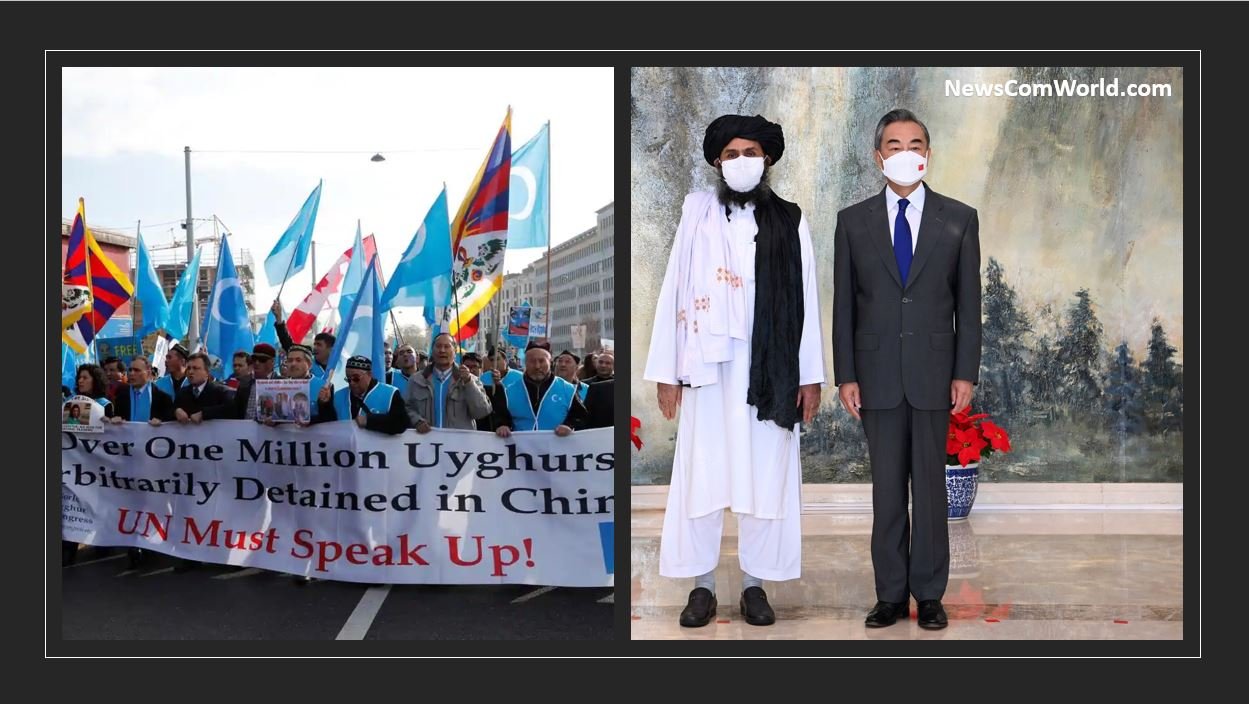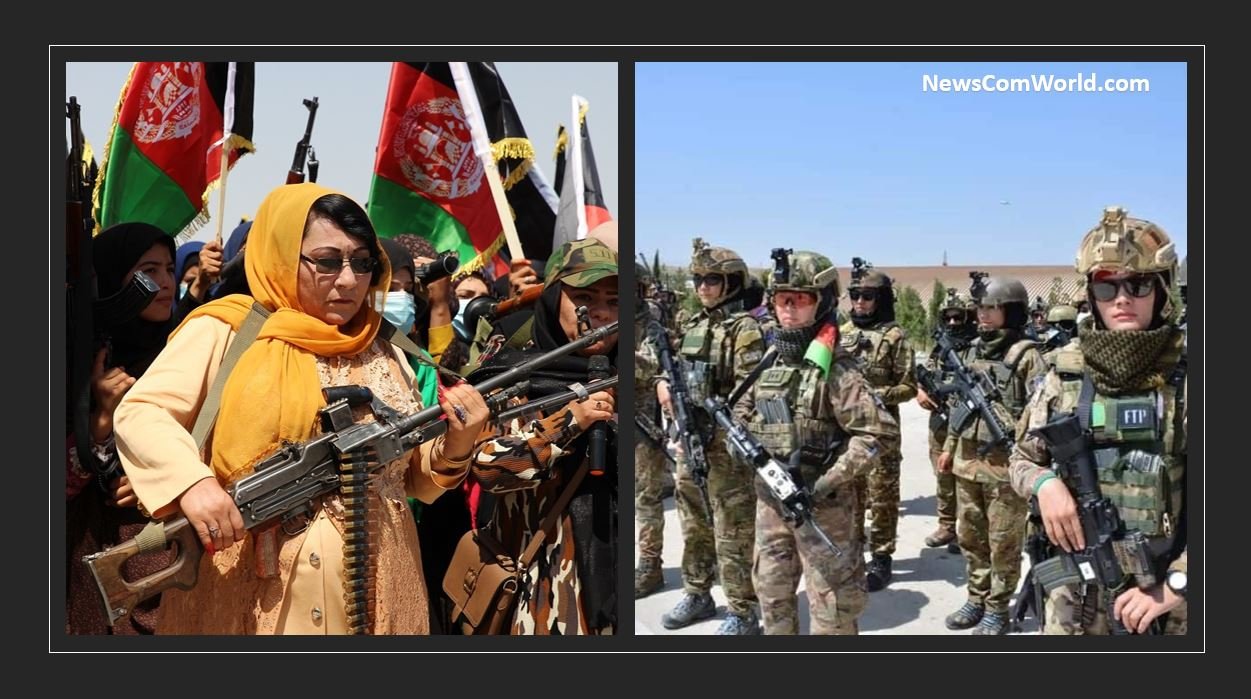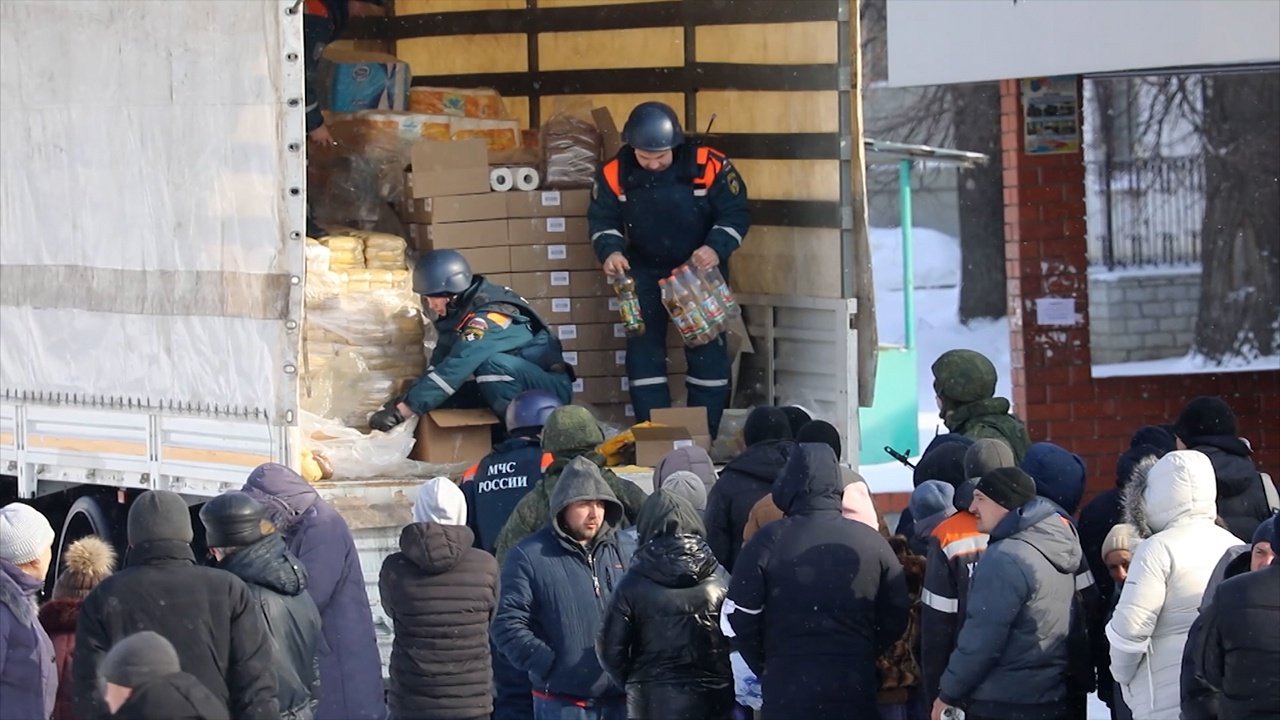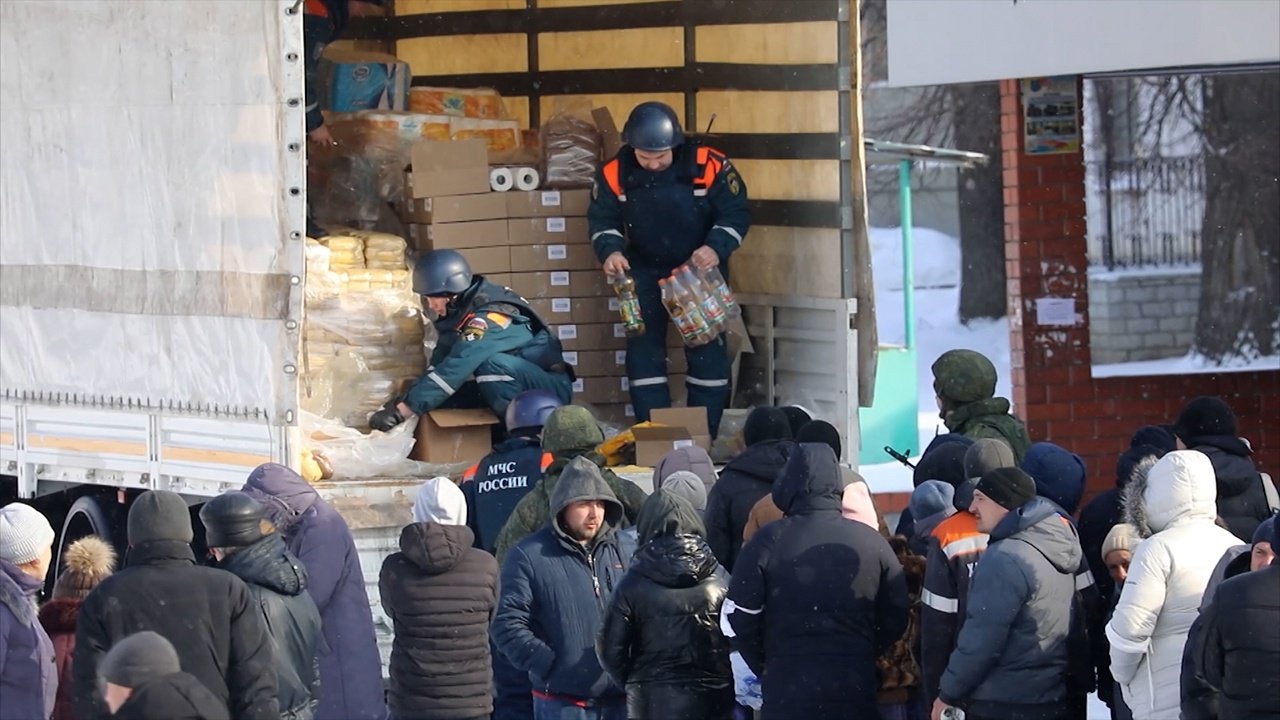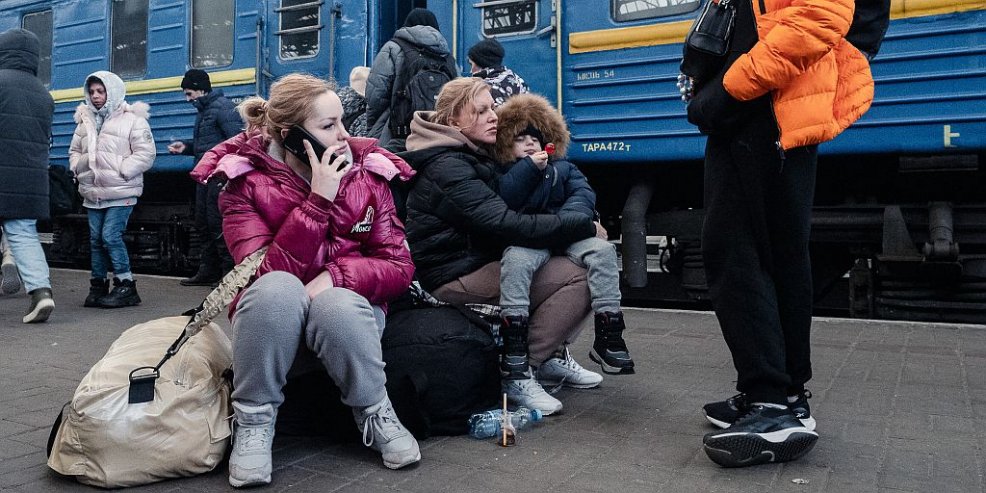The government of the People’s Republic of China (PRC) leads the global expansion in using Artificial Intelligence (AI) tools to monitor and surveil citizens, which along with mass stepped-up surveillance and censorship policies and campaigns further deteriorate human rights situation in the PRC.

A new report released by the Tibetan Centre for Human Rights and Democracy (TCHRD) documents how Tibetans in and out of China occupied Tibet are not only censoring themselves, they are censoring each other because Chinese authorities have made censorship the responsibility of the whole populace. Various methods of mass surveillance such as the “Grid Management” and “Double-Linked Household” systems obligate individuals to report suspicious activity and betray one another or face consequences.
Chinese authorities rely on a strict and pervasive disciplinary machine to punish individuals it sees as a threat, which has resulted in extraordinarily high level of mutual self-censorship among Tibetans. The power of the Chinese Party-State’s influence relies on a combination of basic surveillance and control instruments, a hierarchized system of monitoring and observation and distributed responsibility, and a normalization of fear, judgment, and social distrust.
The changes in China Occupied Tibet over the last decade represent a systematized social control mechanism that ignores human rights such as the freedom of speech, religion, and peaceful assembly. Online surveillance, CCTV cameras, bugged homes, and checkpoints provide simple instruments of observation and monitoring to expand the influence of the state. This ensures a maximum number of points of contact between the state and the Tibetan people through which power and influence can flow.

Digital laws enlist Chinese internet companies into the hierarchy of surveillance, and the “Grid Management” system distributes the power and influence of the Chinese state across China Occupied Tibet. The “Advanced Double-linked Households” system and other policies5 compelling individuals to report suspicious activity bring the entire population into the hierarchy of control and surveillance, obligating individuals to report and betray one another or face consequences. The Party-State punishes any dissenting opinions or behavior and pushes state propaganda, ‘normalizing judgment’ and enacting a power structure that disadvantages Tibetans and penalizes expression of Tibetan political and cultural identity.
Related Article Tibetan Soldiers in PLA Hesitant to Fight against India.
Since 2008 when Tibetans held widespread protests calling for freedom and return of the Dalai Lama, Chinese authorities have tightened control to ensure that such an event will never happen again. In 2012, the Party authorities appointed Chen Quanguo as the Party Secretary of the Tibet Autonomous Region (TAR), where he set about optimizing the power of the Party-s`tate in Tibet. His prototype model of social control has proved highly successful in silencing Tibet and encouraging the rapid forced assimilation of Tibetans. In addition to the “Grid Management” system under which counties are subdivided into cells for intrusive monitoring and surveillance, a network of thousands of “convenience police posts” collects biometric data on the population and serves as outposts or checkpoints in the event of potential unrest. These police posts range across the entire region, with plans for building at least one such post in each of TAR’s 5464 villages, serving to extend the physical presence of the Party-state into every nook and corner of China Occupied Tibet. Integrated computer systems track the movement of individuals between cells, relying on a combination of CCTV cameras, purchases, and satellite tracking.

Another major characteristic of Chen’s social control system is the “Double-linked Household” that divides families into small groups to ensure stability and nip potential dissent in the bud. This system has a dual function of enlisting the communities themselves as low-level state surveillance; ‘loyal’ families are often paired with ‘suspect’ families to watch for ‘religious extremism’, potential threats to Party’s control, and monitor specific individuals.
In China Occupied Tibet, high definition CCTV cameras watching streets, restaurants, and public transportation is not a recent development. However, in the past decade Chinese authorities have made a concerted effort to upgrade these cameras to better track the population. According to recent estimates, there are about 200 million surveillance cameras across the PRC and details of all of all 1.4 billion citizens are recorded in the Chinese government’s facial recognition database. Increasingly accurate artificial intelligence aims to recognize individuals not only based on facial features, but also gait, so that even a mask would not disguise a person’s identity. In the last few years, Chinese authorities have extended this system of cameras into rural areas as well as urban, and Tibetan monasteries are forcibly outfitted with cameras.

In an effort to extend ‘internet sovereignty’ to the digital sphere, Chinese authorities have outlawed many social media platforms and search engines, such as Google, Facebook, and Twitter that allowed for greater freedom of speech and information. In their place, China has practically created its own internet guarded by the “Great Firewall”, populated by China based platforms such as WeChat and Weibo. According to Chinese law, these platforms are obligated to do their part in maintaining “social stability”, which includes censoring search results to match Party lines, and reporting suspicious individuals who engage in activity such as discussing human rights, critiquing the Party, or advocating for Tibetan culture. A study of Chinese microblogging sites found that more than half of messages originating in Tibet are deleted, compared to a mere 12% in Beijing.
The Chinese state’s repression machinery is built on accurate data, and stepped-up surveillance measures represent aggressive actions to control Tibetans. In order to further limit the spheres in which free speech still exists, Chinese authorities have taken action to enforce real name registration online. On sites owned by Chinese tech giants such as Baidu, Alibaba and Tencent, it is impossible for individuals to access the internet without leaving a searchable footprint for authorities. The use of Virtual Private Network (VPN) is considered criminal and the penalty for accessing banned sites can often earn a prison sentence. Until recently, many Tibetans used voice messages to avoid surveillance mechanisms, which could interpret Tibetan and Chinese text, but only Chinese sound bytes. Recent Tibetan voice-to-text technology now allows algorithms to monitor not only voice messages in Tibetan, but phone calls as well.
China’s repression machine in China Occupied Tibet does more than limit what behaviors are acceptable. Propaganda and laws regarding supposedly separatist or extremist behavior obligate individuals to take action; they set community standards that all individuals must follow if they want access to the resources provided by the state. As the Party-state continues to restrict and outlaw social resources that do not follow government guidelines, such as Tibetan language schools and traditional nomadic lifestyles, Tibetans are forced to embody the ideal model citizen, who “love[s] the Chinese Communist Party (CCP) above all else”.

China is currently working on a way to mechanize forced cooperation through the social credit system that will provide a score to each individual based on his or her political leanings, education, ethnicity, and personal associations. The score will define where one can find housing, employment, whether one has access to state healthcare, and whether someone can send their children to state-run schools. The more Chinese authorities replace community education, healthcare, and housing with state provided resources, the more Tibetans are forced to comply in return for simply accessing basic privileges.
Related Article Bill to recognize Tibet as an Independent Country Introduced: US Congress
Any talk of politics or critique of state policy is considered for a charge of separatism; posting, possessing, or even clicking on images of the Dalai Lama is grounds for a charge of religious extremism. To speak of such matters with outsiders is often a more extreme crime in the eyes of the state, and Tibetans are routinely discouraged from contacting the outside world in any way whatsoever.
The punishments for anyone who crosses these largely invisible lines are steep and quick, and Chinese authorities have a long memory for such slights. Detentions and interrogations are commonplace for those who fall into suspicion of committing such crimes; anyone bold enough to call for a free Tibet, human rights, or return of the Dalai Lama is subject to indefinite detention. Many Tibetans are known to have died due to wounds sustained from custodial torture, and many are currently missing with whereabouts unknown after being arrested and in some cases, disappeared. In addition, the government often restricts the rights of the families of political prisoners. Many cannot get jobs or apply for housing, and their children are barred from attending state schools.

In 2018, a three-year nationwide anti-crime campaign was launched to fight crime in PRC. The campaign categorized a range of activities as ‘organized crime’ that includes language protection initiatives, local environmental activity, and any form of support for increased autonomy for Tibetans. The state claims that many of these activities are secretly supporting the “Dalai Clique” and separatist groups. Chinese authorities have always repressed such activities, but the recent campaign gives the repression the legitimacy of law. This represents a systematic violation of human rights, including the right to expression, freedom of assembly, and the right to participate in cultural life.
Related Article The Stronger China Becomes, the Weaker it Becomes – A Look at the Patterns in Chinese History
The mass collection of DNA profiles alongside online surveillance and censorship has enabled China to establish a high-tech surveillance state.26The nationally searchable DNA database of individuals built by the police without “oversight, transparency, or privacy protections” has sparked concerns about human rights violations. In June 2019, Chinese authorities reported that the DNA samples of all residents in Chamdo (Ch: Qamdo) City had been collected since the establishment of the online police DNA database system in the name of fighting crime although evidence show little in terms of fighting actual crimes. Chamdo is the third largest city in TAR with an estimated population of 657505. The database covers all levels of governmental jurisdictions, monastic institutions, and the farming and nomadic community and contains basic information on all citizens including fingerprints, blood samples, and irises.
The right to freedom of opinion and expression, guaranteed under Articles 19 of the Universal Declaration of Human Rights (UDHR) and the International Covenant on Civil and Political Rights (ICCPR), provides that everyone has the right to hold opinions without interference, and to seek, receive and impart information and ideas of all kinds through any media and regardless of frontiers. The realization of this right requires the full protection of the right to privacy, which is necessary for individuals to communicate without undue interference with their privacy. Such interferences can restrict and limit a range of human rights that are exercised online such as the free exchange of ideas and information without fear of retribution.
The legal requirement for online users to register with real name and identification, for instance, takes away the safety of anonymity and makes individual users vulnerable to a host of interrelated human rights violations at the hands of governments and other private entities.
Violation of International Laws and Conventions
Various international and regional human rights instruments and mechanisms recognize privacy as a fundamental human right. The right to privacy is protected in Article 12 of the UDHR, Article 17 of the ICCPR, Article 16 of the Convention on the Rights of the Child (CRC), Article 14 of the Convention on the Protection of All Migrant Workers and Members (CMW), Article 8 of the European Convention on Human Rights and Article 11 of the American Convention on Human Rights.
The principles of equality and non-discrimination form the core of international human rights law and are enshrined in major human rights treaties such as the ICCPR (articles 2.1, 14, 24, 25 and 26); the International Covenant on Economic, Social and Cultural Rights (article 2.2); the Convention on the Elimination of All Forms of Racial Discrimination (articles 1, 2, 4 and 5); the CRC (article 2); the CMW (Article 7); the Convention on the Elimination of All Forms of Discrimination Against Women (articles 2, 3, 4 and 15); and the Convention on the Rights of Persons with Disabilities (articles 3, 4, 5 and 12).
Laws such as the National Intelligence Law (2017), Counter Espionage Law (2014), National Security Law (2015), Counterterrorism Law (2015), Foreign NGO Management (2016), as well as the Ninth Amendment to the PRC Criminal Law (2015) and the Encryption Law grant government authorities arbitrary powers to monitor suspects, raid
premises and seize vehicles and devices. They create affirmative legal responsibilities for both domestic and foreign individuals, companies, and organizations “to provide access, cooperation, or support for” the government’s intelligence-gathering activities to promote the interests of the government.
Related Article The Chinese Communist Party’s Human Rights Abuses in Xinjiang
Lacking any safeguards for human rights protection, these laws allow government authorities to surveil activists and persecute human rights defenders. The preoccupation with state security in numerous cybersecurity narratives ignores the risks it poses to human rights. Article 7 of the National Intelligence Law, for instance, makes it an obligation of every Chinese citizen to “support national intelligence work,” which results in widespread spying among the populace making self-censorship the only safe option.
Self-Censorship and Human Rights
Self-censorship has become a mandatory quality of daily life in China Occupied Tibet; one that usually includes cutting ties with loved ones for one’s own safety. This is indicative of a systemic abuse of human rights, to the point the people are afraid to contact their own family even for something as simple as saying hello. The imposed separation of families on this level is unacceptable, and stems from imposed self-censorship.
By punishing those who so much as interact with a ‘suspicious’ individual, the Party-state forces Tibetans to take initiative and censor their own community. If a loved one or acquaintance is too vocal about issues that the government tries to suppress, Tibetans must choose between risking their own safety by doing nothing, reporting the individual to the police, or severing all contact with the loved one.
Not only are Tibetans censoring themselves, they are censoring each other; if a loved one speaks too openly about sensitive issues, it puts both the individual and the loved one in danger, and that danger compels the individual to take action. Mutual self-censorship threatens Tibetans’ ability to express their own political and cultural identity and protest human rights violations. This is the result of a very concerted effort on the part of the Party-state, which is fully aware of the impact of the social control mechanisms that it has put in place in China Occupied Tibet. The former TAR Party Secretary Chen Quanguo’s transfer to Xinjiang, where he has replicated the exact same model of social control on the Uyghur population,38 demonstrates a willful and organized repression of “ethnic minorities” in the People’s Republic of China (PRC).
Related Article Civilization vs Barbarity : Contrasting world outlook of India and China
20 not-to-do’s
To further increase state control over digital sphere, Chinese authorities in TAR issued a directive in 2019, known as the “20 not-to-do’s”, which mirrors the repressive provisions introduced in the National Security Law (2015), the Cyber Security Law (2016), the Counter Terrorism Law (2016, and the Anti Espionage Law (2014). The contents of the directive were made in a series of comic strips to attract public attention and to make the directive widely accessible. The activities deemed illegal under the directive and corresponding punitive actions have further caused a spike in self-censorship among Tibetans living in and out of Tibet. The directive’s ulterior motive is evident in the way human rights advocacy particularly “rights defense” work and promotion of “public discussions on common issues of concern” is criminalized as “provoking the people to despise and attack the government”

There is a clear attempt to silence civil society groups that receive funding from foreign donors on the charge of “illegally using online communication tools to share fabricated news and information, which destroys the unity of the nation, inciting state subversion”.

There are provisions in the directive that reinforce the Chinese government narrative that all demonstrations and protests against the government are funded by hostile forces

and people using the Internet to share information about human rights violations or other excesses of Chinese state power are “engaging in espionage activities on behalf of foreigners” and “illegally sharing state secrets”.

The directive further forbids using communication tools “to organize, participate in, and incite illegal activities such as religious extremism, violence, and fraudulent crimes”;

“inciting the public to destroy social order”;

“inciting ethnic hatred and ethnic divisions”;

and promoting “superstitious religious beliefs” and “illegal cults”.

Punitive measures for violating the ban on ‘illegal’ contents online range from imprisonment and denial of permission to harvest caterpillar fungus, an important source of income among Tibetan nomads to short term detention for political education and monetary fines. A local regulation enforced in Diru (Ch: Biru) County in Nagchu Prefecture requires the police to detain and investigate people who engage in spreading rumors or propagating harmful information on the Internet at the instigation of others. The directive has deterred many local human rights informants from sharing information about deteriorating human rights situation in Tibet owing to harsh retaliatory measures adopted by the Chinese authorities.
Related Article Chinese PLA Soldiers Cry As They are Sent to Indo-China LAC To Face Indian Army
China’s widespread and intrusive practices of mass surveillance and censorship have served as a perfect foil to continue perpetrating human rights violations with impunity in Tibet. Since 2008 when Tibetans held widespread protests calling for freedom and return of His Holiness the Dalai Lama, Chinese authorities have tightened control to ensure that such an event will never happen again. For years now, the Chinese Communist Party (‘Party’) authorities have enforced a model of social control that has proved highly successful in silencing Tibet and encouraging the rapid forced assimilation of Tibetans.
In one of the testimonies in the report, a Tibetan man recounted the intense restrictions he faced during his 2016 visit to his hometown in Dola (Ch: Qilian) County in Tsojang (Ch: Haibei) Tibetan Autonomous Prefecture, Qinghai Province in the Tibetan province of Amdo. On his arrival in Xining, he had to report to the provincial United Front Work Department, where he was temporarily given an iPhone 4 that he was required to use for all communication purposes during his entire stay in Tibet. He was prohibited from using his own phone, which was subjected to a thorough search by the authorities. There was also an explicit order that forbid him from taking any pictures and videos of his hometown or share any such information with Tibetans in India. The iPhone 4 had preinstalled malware that automatically downloaded pictures and audio messages enabling the authorities to track his movement and location, as he later learned from his relatives.
The report warns that ignoring the unprecedented level of imposed self-censorship and attendant human rights violations will have serious and widespread negative ramifications not only on human rights situation in Tibet and elsewhere in the PRC but also outside of it due to the normalisation of ‘digital transnational repression’. Concluding with a list of recommendations, the report calls for a strong global coalition of states, civil societies, corporate bodies, and individuals united by their shared concerns and values about human rights and individual freedoms to counter the growing influence of Chinese state surveillance and censorship model.
Related Article Aksai Chin: Logistics Nightmare For PLA
Points to Ponder
Isn’t this stepped-up surveillance by China in China Occupied Tibet a gross Human Rights abuse?
Would the Leftist Liberal Main stream Media and the Politicians who praise China on all counts, love to stay in such a state with this kind of stepped-up surveillance as is implemented in China Occupied Tibet?
A question for all the European Countries. Would they still like to continue business with Fascist China that has stepped-up surveillance that is gross violation of all International Laws and conventions?
Would United Nations and its bodies that are dominated by China and its allies take any action against China for the stepped-up surveillance or is the United Nations defunct and needs to be dismantled?
Follow us at:-
Twitter Handle: @newscomworld
Instagram Handle: @newscomworld
Parler Handle: @newscommuniquecom
Subscribe our : YouTube Channel https://www.youtube.com/channel/UCnKJQ3gFsRVWpvdjnntQoAA
Like our Facebook Page https://www.facebook.com/NewsComWorld
3,353 total views



